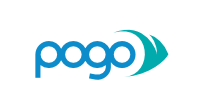Partnership for Observation of the Global Ocean (POGO) announces a special Fellowship for on-board training on an Antarctic Deep Water Rates of Export (ANDREX) Cruise in partnership with Plymouth Marine Laboratory (PML) in the UK. One berth has been reserved on the next ANDREX cruise (ANDREX II) for the selected candidate. The programme is designed to promote training and capacity building leading towards a global observation scheme for the oceans.
The ANDREX Programme
The ocean has absorbed a quarter of anthropogenic CO2 since the industrial revolution. The Southern Ocean is an area of deep water formation and thereby Carbon transport to the Ocean interior. The Antarctic Deep Water Rates of Export (ANDREX) cruise section (Figure 1) is part of the international effort to quantify this Carbon sink. The section encompasses the Antarctic Circumpolar Current (ACC) to the north and Weddell Sea to the south where deep water formation and Carbon sequestration take place. By quantifying the hydrography, age of water masses and their carbonate system we aim to quantify this transport under the UK Ocean Regulation of Climate by Heat and Carbon Sequestration and Transports (ORCHESTRA) programme (https://www.bas.ac.uk/project/orchestra/). The ANDREX section is a repeat-hydrographic section, previously occupied in 2009/10 and approximately under the WOCE S4A section in 1996 (https://www.nodc.noaa.gov/woce/). Such repeat observations allow us to constrain changes in anthropogenic Carbon and heat export over time.
The ANDREXII cruise will start and finish in the Falkland Islands and will take place on-board the RRS James Clark Ross (https://www.bas.ac.uk/polar-operations/sites-and-facilities/facility/rrs-james-clark-ross/) with a team of scientists from the British Antarctic Survey (BAS), Plymouth Marine Laboratory (PML) and National Oceanography Centre, Southampton (NOC). The POGO fellow will assist with carbonate chemistry (Dissolved Inorganic Carbon, pH, pCO2) and Oxygen sampling and measurements.
Documents available to download:





